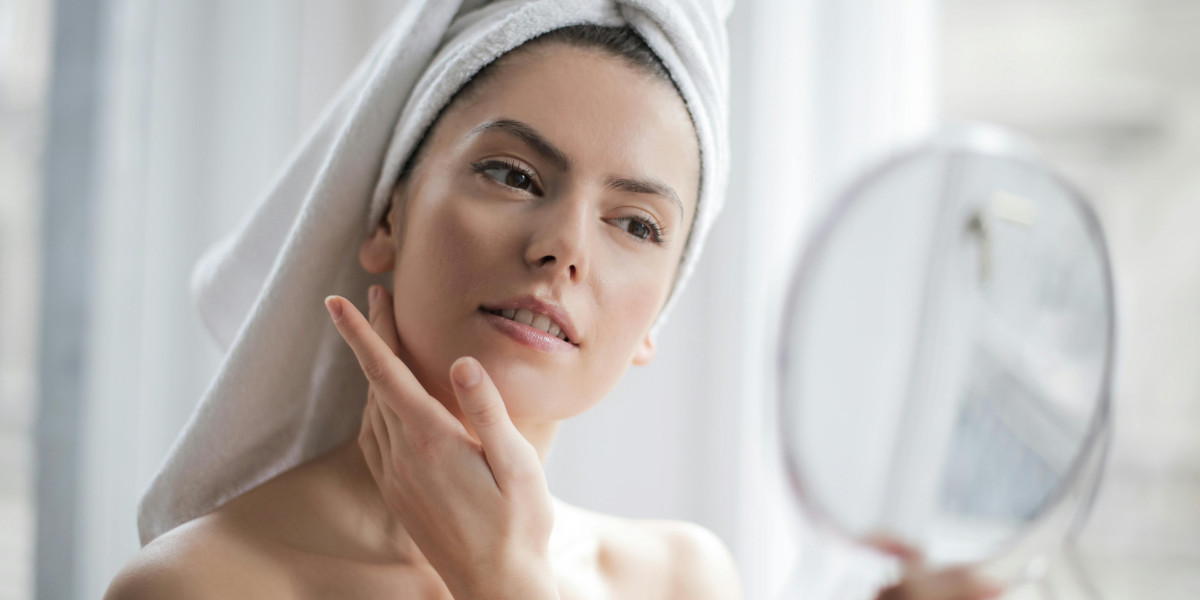In an increasingly health and environmentally conscious world, organic beauty products are gaining popularity. Formulated with natural ingredients and free from harmful chemicals, these products offer a safe and effective alternative for skincare. In this article, we will explore everything you need to know about organic beauty products, from their benefits to the top brands and recommendations for natural skincare.
Benefits of organic beauty products:
Organic beauty products offer a range of benefits for both the skin and the environment. Firstly, they are formulated with natural ingredients such as essential oils, plant extracts, and antioxidants, which nourish the skin without causing irritation or side effects. Additionally, by not containing synthetic chemicals or harmful ingredients, they are less likely to cause allergic reactions or skin sensitivity. Furthermore, the organic cultivation of the ingredients used in these products promotes sustainable farming practices and protects the environment from chemical pollution.
Types of organic beauty products:
Organic beauty products encompass a wide range of categories, including facial cleansers, moisturizers, serums, masks, and more. Each type of product is formulated to address specific skincare needs, such as hydration, luminosity, wrinkle reduction, and protection against environmental damage. Some brands even offer complete lines of organic beauty products designed for all skin types, from dry to oily and sensitive.
Leading brands of organic beauty products:
As the demand for organic beauty products grows, more and more brands are entering this market. Among the standout brands are [Brand 1], known for its sustainable ingredients and gentle yet effective formulas. [Brand 2] is another popular option, especially among those with sensitive or acne-prone skin, thanks to its hypoallergenic and fragrance-free products. Additionally, [Brand 3] stands out for its commitment to transparency and ethics in the production of organic beauty products, using only certified organic and cruelty-free ingredients.
Recommendations for skincare with organic beauty products:
incorporating organic beauty products into your skincare routine, it's important to follow some key recommendations. Firstly, identify your specific skincare needs and choose products formulated to address those concerns. Additionally, always perform a patch test before using a new product to ensure you don't have allergic reactions. Furthermore, remember that results may vary from person to person, so be patient and consistent with your skincare routine.
The best products for skincare
Organic facial cleanser:
with natural ingredients such as essential oils, plant extracts, and gentle clays, this cleanser gently removes dirt, makeup, and impurities without stripping the skin of its natural oils.
moisturizer:
Enriched with ingredients like coconut oil, shea butter, and aloe vera, this moisturizer provides deep and lasting hydration for all skin types, leaving it soft, smooth, and radiant.
Organic facial serum:
Formulated with antioxidant-rich botanical oils such as rosehip oil, jojoba oil, and argan oil, this serum nourishes the skin, reduces the appearance of fine lines and wrinkles, and promotes a brighter and more youthful complexion.
Organic facial mask:
This mask is made with ingredients like bentonite clay, raw honey, and soothing plant extracts, which help purify pores, remove toxins, and revitalize the skin, leaving it clean, fresh, and rejuvenated.
Organic sunscreen:
with natural and mineral ingredients like zinc oxide and titanium dioxide, this sunscreen provides effective protection against UVA and UVB rays without harmful chemical ingredients, making it ideal for sensitive and allergy-prone skin.
These are just a few examples of organic skincare products available on the market. It's important to read labels and look for recognized organic certifications to ensure the quality and purity of the ingredients.
Where to buy your skincare products
You can purchase products from these brands at a variety of places, both in physical stores and online. Here are some common options:
Specialty stores in organic and natural beauty:
cities have specialized stores that focus on selling organic and natural skincare products. These stores often offer a wide selection of brands and products, as well as expert advice on which products are best for your needs.
Department stores and pharmacies:
Some department store chains and pharmacies also carry organic and natural beauty products in their skincare sections. These products may be available in both physical stores and online, providing convenience and accessibility.
Brand websites and online retailers:
Most organic and natural beauty brands have their own websites where you can purchase their products directly. Additionally, many online retailers also carry a wide selection of organic and natural skincare products, allowing you to easily compare prices and options. As for the average cost, organic and natural products tend to be slightly more expensive than their conventional counterparts due to the quality of ingredients and production processes.
The cost can vary depending on the type of product, brand, and size of the packaging. As a reference, prices can range from a few dollars for a lip balm or a facial mask to over a hundred dollars for a high-end facial serum or moisturizer. It's important to consider the value for money and the product's longevity when assessing costs.
The Importance of Skincare from an Early Age
Skin care is essential to keeping it healthy and radiant throughout life. But at what age should we start caring for our skin? we will explore the importance of caring for the skin from an early age and how establishing an appropriate skincare routine can make a difference in the health and appearance of the skin in the future.
Why skincare is important from an early age:
for the skin from an early age not only helps prevent future problems but also promotes healthier and more radiant skin throughout life. During childhood and adolescence, the skin is constantly developing and is more susceptible to damage from the sun, pollution, and other environmental factors. Establishing good skincare habits from an early age can help prevent premature aging, acne, and other common skin issues in adolescence and adulthood.
How to start caring for the skin from an early age:
The key to caring for the skin from an early age is to establish a simple yet effective skincare routine. This includes gently cleansing the skin twice a day with a gentle, alcohol-free cleanser, applying a broad-spectrum sunscreen with an SPF of at least 30 every day, and moisturizing the skin with a lightweight, non-comedogenic moisturizer. Additionally, it's important to avoid excessive sun exposure and practice healthy habits such as a balanced diet, regular exercise, and getting enough sleep.
Skincare tips for each stage of life:
As we progress through life, our skincare needs change. During adolescence, it's important to pay attention to acne control and scar prevention, while in young adulthood, the focus is on preventing premature aging and protecting against environmental damage. In adulthood, skincare focuses on maintaining hydration and elasticity, while in the golden years, the focus is on caring for sensitive skin and preventing dryness and wrinkles.
Tips for Establishing a Facial Care Routine:
Know your skin type: Before starting any facial care routine, it's important to understand your skin type. Is it oily, dry, combination, or sensitive? This will help you select the right products for your skin type.
Cleanse your face twice a day: Gently cleanse your face in the morning and at night to remove dirt, excess oil, and impurities that accumulate throughout the day and night.
Use a gentle facial cleanser: Choose a facial cleanser that is suitable for your skin type and does not contain harsh ingredients like sulfates or strong fragrances that may irritate the skin.
Exfoliate regularly: Exfoliation removes dead skin cells, leaving your complexion smoother and more radiant. However, do not over-exfoliate as this can irritate the skin. Once or twice a week is usually sufficient.
Hydrate your skin: After cleansing and exfoliating, apply a moisturizer suitable for your skin type. Hydration is essential for maintaining balanced skin and protecting it from dryness and premature aging.
Use sunscreen every day: Sun protection is essential to prevent damage caused by UV rays, such as sunburn, dark spots, and premature skin aging. Apply a sunscreen with an SPF of at least 30 every morning, even on cloudy days.
Incorporate targeted treatments as needed: If you have specific skin concerns, such as acne, dark spots, or signs of aging, consider adding targeted treatments to your routine, such as serums, masks, or night treatments.
Listen to your skin: Pay attention to how your skin reacts to the products you use and adjust your routine as needed. If you experience irritation, redness, or dryness, you may need to change or reduce the frequency of use of certain products.
Be consistent: The key to an effective facial care routine is consistency. Apply your products regularly and do not skip steps, even when you're tired or in a hurry.
Consult a dermatologist if necessary: If you have concerns about your skin or are dealing with persistent issues, such as severe acne or rosacea, don't hesitate to consult a dermatologist for personalized advice and treatment.
Organic beauty products offer a safe and effective way to naturally care for your skin. With a wide variety of products available in the market and brands committed to quality and sustainability, adopting an organic skincare routine has never been easier. By choosing products formulated with natural and certified organic ingredients, you can improve the health and appearance of your skin while also protecting the environment.







